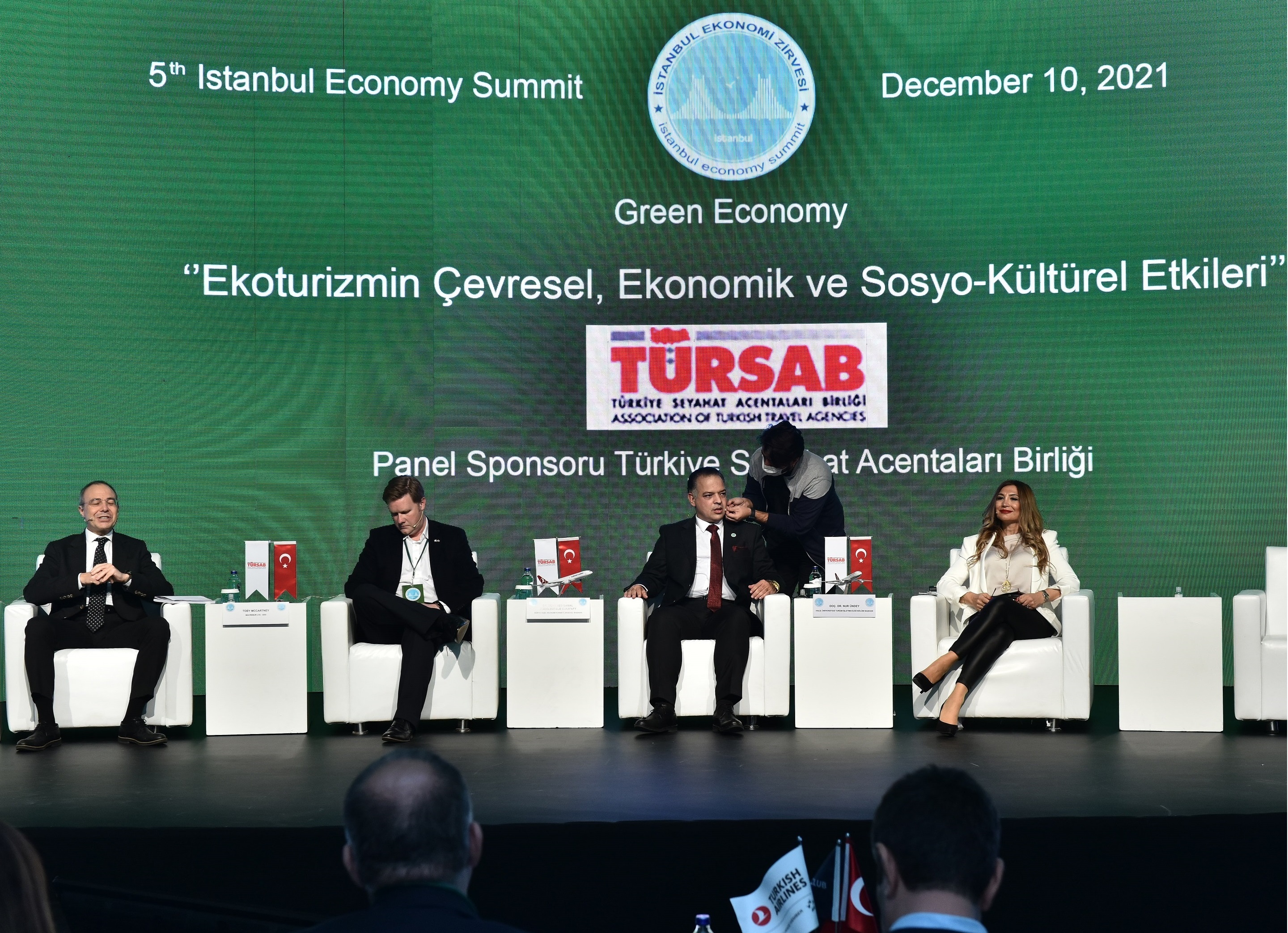
Dr. Mohamed G. Kafafy , The Chief Consultant for Energy & SD of the World Fund of Development & Planning (WFDP) Represent the organization officially in Istanbul Economy Summit 2021 with a very important topic related to Green Economy For Survive & Thrive ,
Dr. Kafafy has speech included :
Dear Ladies and Gentlemen
I was honored & pleased to be officially invited as a guest of honor & keynote speaker at this great Summit, and to provide a presentation entitled: GREEN ECONOMY FOR SURVIVE & THRIVE (Facts & Figures).
A green economy is defined as low carbon, resource efficient and socially inclusive. In a green economy system, growth in employment and income are driven by public and private sectors into such economic activities, infrastructure and assets that allow reduced carbon emissions and pollution, enhanced energy and resource efficiency, and prevention of the loss of biodiversity and ecosystem services.
Some facts & figures for Benefits of Green Economy and Environmental Action: United Nations ESCAP calculations show that just a 1 per cent improvement in resource efficiency of material resources (domestic material consumption) and energy combined can deliver the region monetary benefits of up to $275 billion in terms of resource costs at current prices. This translates to 51 per cent of the current FDI inflows to the region or almost 87 per cent of the combined gross domestic product (GDP) of the least developed countries in the region. These benefits accrue largely to the manufacturing, construction and energy-intensive sectors. At the firm level, if resource savings are used to provide jobs at the average wages, as many as 15.6 million could be generated.
Globally, a transition to a circular economy approach is estimated to provide more than $1 trillion in material cost savings by 2025. In the case of the major fast-moving consumer goods sectors, the order of magnitude of the material resource savings that can be generated from a transition to a circular economy alone could result in up to $706 billion annually. Considering that in key fast-moving consumer goods sectors the Asia and the Pacific region accounts for more than 60 per cent of the global share, the bulk of these potential benefits can be harvested within the region.
In Turkey, just Energy efficiency benefits from the transition to energy efficient lighting in the residential, commercial, industrial and outdoor sectors for all major lamp types through the implementation of Minimum Energy Performance Standards at two levels of ambition (minimum and high) could saving in 2030 annually: Reduce electricity use by over 3.4 TWh which is 1.2% of current national electricity use, Save electricity worth 380 Million US$ equivalent to 1 Power Plant [500MW], Reduce electricity CO2 emissions by over 1.9 Million tonnes equivalent to 1.1 Million Passenger Cars.
Our World Green Economy Indicator (WGEI) measuring the green economy performance of nations around the world and how experts assess that performance. The WGEI is defined by 25 underlying indicators, each contained within one of the four main dimensions of (1) Leadership & Climate Change, (2) Resource Efficiency, (3) Markets &Investment and (4) Environment & Social Justice. The latest WGEI results for ranking 130 nations showed that the top 10 nations respectively are: Sweden, Switzerland, Iceland, Germany, Norway, Finland, Denmark, Austria and France. And Turkey ranked (59 from 130 Nations) revealed that there are great opportunities for national green growth projects and programs at different sectors such as: renewable energy, waste to energy, recycling, green buildings, smart systems, and resource efficiency improvements.
Moreover, Ecotourism and Green Tourism are one of the means to achieve Sustainable Development. Because, the tourism economy represents 5% of world GDP, while it contributes to about 8% of total employment. International tourism ranks fourth (after fuels, chemicals and automotive products) in global exports, with an industry value of US$ 1 trillion a year, accounting for 30% of the world’s exports of commercial services or 7.9% of total exports. Domestic tourism represents on average 62% of total tourism consumption worldwide. With growing developing country participation, tourism has become a major contributor to their growth. In over 150 countries, tourism is one of five top export earners, and in 60 it is the number one export. It is the main source of foreign exchange for one third of developing countries and one half of LDCs .
Last but not least, I have five recommendations to government, public and private sectors for National Green Growth Strategies in Turkey: